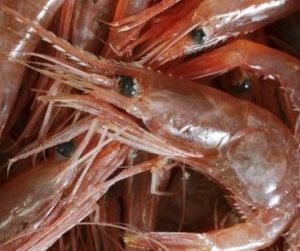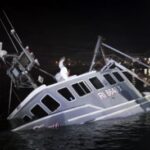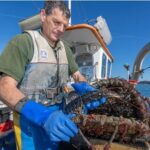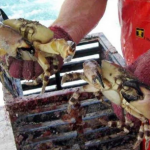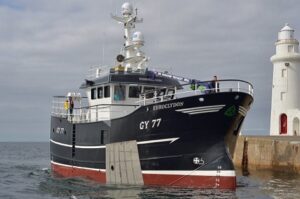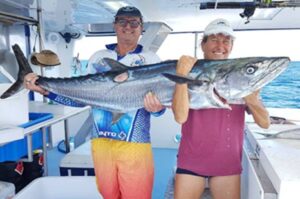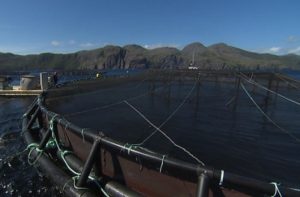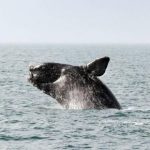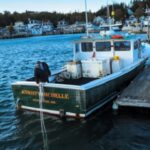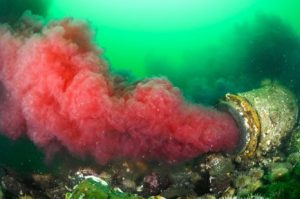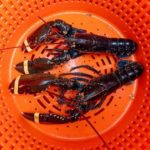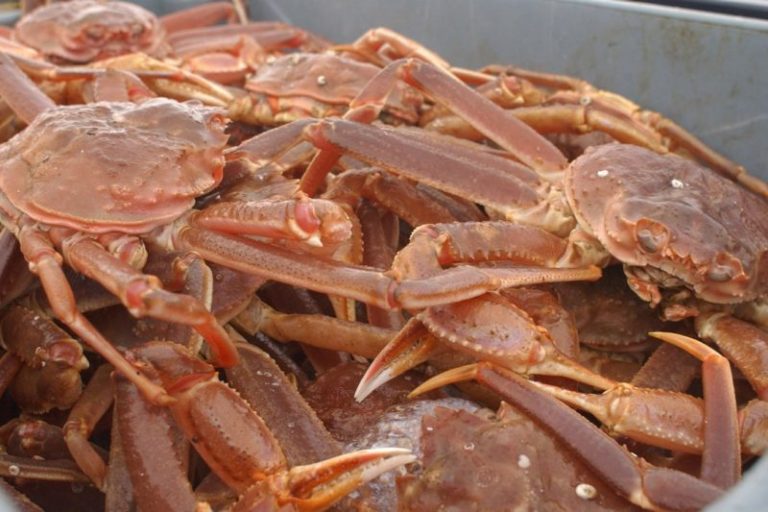Tag Archives: Fisheries Minister Diane Lebouthillier
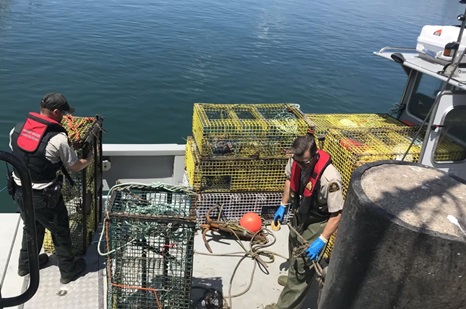
Federal memo estimates more than $176M of Atlantic lobster catch unreported, untaxed
The federal Department of Fisheries and Oceans suspects hundreds of millions of dollars’ worth of lobster is caught in Atlantic Canadian waters each year but never reported to authorities, raising both tax evasion and conservation implications in the country’s largest fishery. An internal memo in August to DFO’s deputy minister said it’s estimated that between 10 and 30 per cent of lobster landings in the region are unreported, and the department said in a statement it is working to map out criminal networks and money laundering in the sector. “It’s mind-boggling,” said Osborne Burke, the president of the Nova Scotia Seafood Alliance, which represents about 150 lobster buyers and processors and has urged a crackdown on unreported cash sales. more, >>CLICK TO READ<< 06:44

End of cod moratorium touted after 32 years as Ottawa approves small increase in commercial catch
Thirty-two years after the federal government announced a moratorium that shut down Newfoundland and Labrador’s cod industry, Fisheries Minister Diane Lebouthillier said Wednesday that it is reopening. But what the federal government described in a statement as the “historic return of the commercial northern cod fishery” will amount to just a small increase in fishing activity that had been allowed during the recent years of the moratorium. “Ending the northern cod moratorium is a historic milestone for Newfoundlanders and Labradorians,” Lebouthillier said in a statement. “We will cautiously but optimistically build back this fishery with the prime beneficiaries being coastal and Indigenous communities throughout Newfoundland and Labrador.” The Fisheries and Oceans announcement comes with political overtones. Video, more, >>CLICK TO READ<< 09:40
Lobster dispute settled a day after fishermen defy order to remove traps
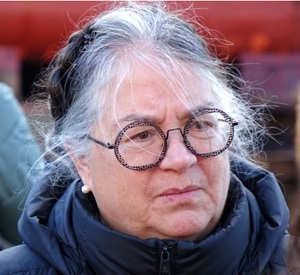 A brewing battle between the federal government and lobster fishermen in northern New Brunswick appears to have come to an end. A federal closure of lobster fishing zones in the Gulf of St. Lawrence off New Brunswick’s Acadian Peninsula was being defied by hundreds of fishermen refusing to remove their traps. A news release from the Department of Fisheries and Oceans sent Thursday evening says that lobster boats will be able to fish closer to shore. “I am pleased to see DFO has adjusted the closure requirements and harvesters can now set their traps up to the 10 fathom shallow water protocol management line for the remainder of the 15-day period,” said federal Fisheries and Oceans , in the release. more, >>CLICK TO READ<< 08:50
A brewing battle between the federal government and lobster fishermen in northern New Brunswick appears to have come to an end. A federal closure of lobster fishing zones in the Gulf of St. Lawrence off New Brunswick’s Acadian Peninsula was being defied by hundreds of fishermen refusing to remove their traps. A news release from the Department of Fisheries and Oceans sent Thursday evening says that lobster boats will be able to fish closer to shore. “I am pleased to see DFO has adjusted the closure requirements and harvesters can now set their traps up to the 10 fathom shallow water protocol management line for the remainder of the 15-day period,” said federal Fisheries and Oceans , in the release. more, >>CLICK TO READ<< 08:50
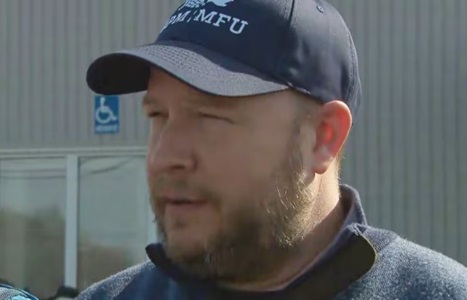
N.B. lobster fishermen defy DFO, leave traps in despite closure for North Atlantic right whales
Several fishing zones in the area were officially shut down early by the Department of Fisheries and Oceans at 5 p.m. Wednesday because of a North Atlantic right whale sighting. But at a meeting in Lamèque at the time of the deadline, about 200 members of the Maritime Fishermen’s Union decided not to remove their roughly 60,000 traps in the area. However, the fishermen say they will not go out Thursday in order to give the federal agency one more chance to negotiate. On Wednesday, a release from DFO said that the fishing zone closures, initially scheduled to last 10 days, would stay closed for the rest of the season. more, >>CLICK TO READ<< 06:56
Five people from Maine arrested in Nova Scotia for illegally fishing baby eels
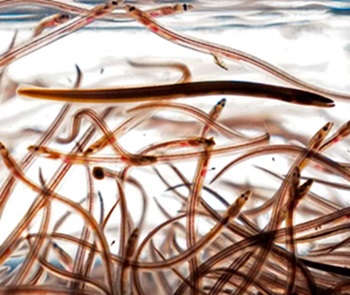 The federal Fisheries Department, (DFO), says five people from Maine were arrested in southwestern Nova Scotia last weekend for illegally fishing for baby eels. In a news release, the department says the arrests occurred April 20 and in the early hours of April 21 in the Meteghan area of Digby County. The release didn’t say whether they would face charges, but it notes that fisheries officers seized nearly 3.5 kilograms of baby eels — also known as elvers — a vehicle, three dip nets and one fyke net. more, >>CLICK TO READ<< 16:14
The federal Fisheries Department, (DFO), says five people from Maine were arrested in southwestern Nova Scotia last weekend for illegally fishing for baby eels. In a news release, the department says the arrests occurred April 20 and in the early hours of April 21 in the Meteghan area of Digby County. The release didn’t say whether they would face charges, but it notes that fisheries officers seized nearly 3.5 kilograms of baby eels — also known as elvers — a vehicle, three dip nets and one fyke net. more, >>CLICK TO READ<< 16:14
Cancelling legal elver fishery has not stopped poaching in N.S.
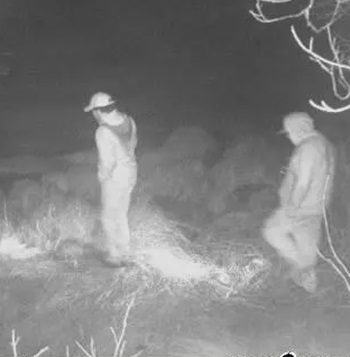 Nova Scotia RCMP have charged a Parrsboro man with multiple criminal counts after a night time altercation with fishery officers attempting to stop illegal elver fishing in Hubbards this weekend. The Department of Fisheries and Oceans says its officers tried to inspect a vehicle on Saturday “as part of their normal activities to deter and disrupt unauthorized elver harvest.” “An individual obstructed fishery officers from conducting the inspection and struck the officers with their vehicle while fleeing to attempt to avoid arrest. “The fishery officers involved were not injured and alerted local RCMP to the incident,” more, >>click to read<< 19:03
Nova Scotia RCMP have charged a Parrsboro man with multiple criminal counts after a night time altercation with fishery officers attempting to stop illegal elver fishing in Hubbards this weekend. The Department of Fisheries and Oceans says its officers tried to inspect a vehicle on Saturday “as part of their normal activities to deter and disrupt unauthorized elver harvest.” “An individual obstructed fishery officers from conducting the inspection and struck the officers with their vehicle while fleeing to attempt to avoid arrest. “The fishery officers involved were not injured and alerted local RCMP to the incident,” more, >>click to read<< 19:03
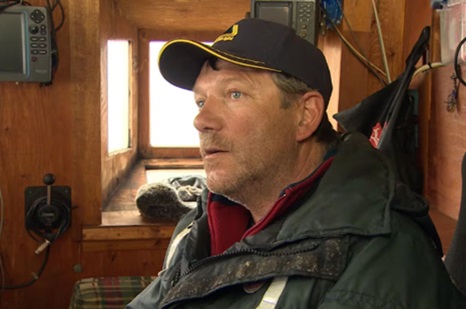
An appeal for seal: Supporters say it’s time to review bans on ‘sustainable’ industry
Fisheries managers allow some 400,000 harp seals to be harvested annually, but the allowable catch hasn’t been taken in the past 15 years. These days, hunters only take about 40,000 seals because of international bans that have dramatically reduced access to markets. The United States has had a ban on seal products since 1972, the European Union banned seal products in 2009, and the Chinese market also has restrictions. But while the sealing industry struggles to stay alive, it’s a way of life that continues. Eldred Woodford, president of the Canadian Sealers Association, has been eating seal his entire life. He’s frustrated that more people aren’t seeing the value of an abundant food source just off the coast. “It’s a waste of a resource. That’s what it is,” he said. more, >>click to read<< 10:03
Minister Lebouthillier’s decision regarding the elver fishery in 2024
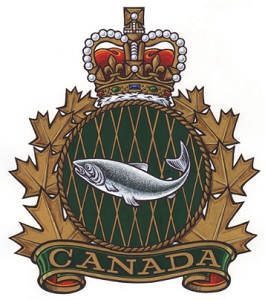 First and foremost, I would like to thank elver license holders, Indigenous communities and the public for the input that was shared with me on this year’s elver fishery. Our government is committed to the conservation of American eel, with sustainability and orderly management as the top priorities for the elver fishery. As you know, over the last few years we have unfortunately seen a pattern of increasing and very serious challenges in the elver fishery, including significant quantities of elvers being fished illegally, jeopardizing the conservation of the species. The fishery has also become the focus of harassment, threats and violence between harvesters and toward fishery officers, with a number of confrontations and incidents of violence creating an immediate threat to the management of the fishery and public safety. This undermines international and domestic efforts to sustainably manage elver fisheries. more, >>click to read<< 18:38
First and foremost, I would like to thank elver license holders, Indigenous communities and the public for the input that was shared with me on this year’s elver fishery. Our government is committed to the conservation of American eel, with sustainability and orderly management as the top priorities for the elver fishery. As you know, over the last few years we have unfortunately seen a pattern of increasing and very serious challenges in the elver fishery, including significant quantities of elvers being fished illegally, jeopardizing the conservation of the species. The fishery has also become the focus of harassment, threats and violence between harvesters and toward fishery officers, with a number of confrontations and incidents of violence creating an immediate threat to the management of the fishery and public safety. This undermines international and domestic efforts to sustainably manage elver fisheries. more, >>click to read<< 18:38
Talks continue on catch limits before moratorium lifts on East Coast redfish fishery
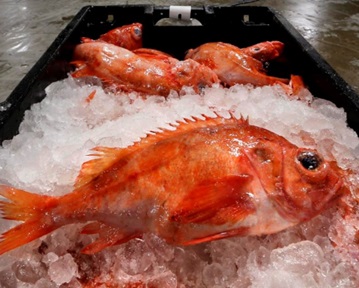 The federal Fisheries Department (DFO), says it is still collecting feedback on how to reopen the redfish fishery this spring in the Gulf of St. Lawrence, after collapsing stocks led to a decades-long moratorium. The department says in a news release that it wrapped up four days of meetings with the industry-government redfish advisory committee in Halifax on Thursday. Participants included representatives from Indigenous groups, industry, provincial governments and environmental organizations. more, >>click to read<< 11:31
The federal Fisheries Department (DFO), says it is still collecting feedback on how to reopen the redfish fishery this spring in the Gulf of St. Lawrence, after collapsing stocks led to a decades-long moratorium. The department says in a news release that it wrapped up four days of meetings with the industry-government redfish advisory committee in Halifax on Thursday. Participants included representatives from Indigenous groups, industry, provincial governments and environmental organizations. more, >>click to read<< 11:31
With the elver harvesting season on the line, some Mi’kmaw chiefs are scrambling for options
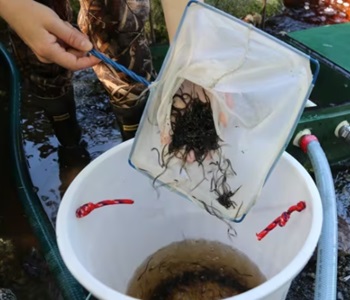 Fisheries Minister Diane Lebouthillier has said that due to violence, threats, widespread unauthorized harvesting and potential harm to elver stocks the season should be cancelled because it was “not possible to have a safe and sustainable elver fishery.” Key elements of the Mi’kmaw proposal include monitoring total allowable catches, enhancing traceability using GPS and responsibly managing the fishery. It would also double their total allowable catch. Gerald Toney, fisheries co-lead for the Assembly of Nova Scotia Mi’kmaq Chiefs, said communities still need to discuss future plans and whether harvesters will continue to fish even with a ban in place. more, >>click to read<< 08:01
Fisheries Minister Diane Lebouthillier has said that due to violence, threats, widespread unauthorized harvesting and potential harm to elver stocks the season should be cancelled because it was “not possible to have a safe and sustainable elver fishery.” Key elements of the Mi’kmaw proposal include monitoring total allowable catches, enhancing traceability using GPS and responsibly managing the fishery. It would also double their total allowable catch. Gerald Toney, fisheries co-lead for the Assembly of Nova Scotia Mi’kmaq Chiefs, said communities still need to discuss future plans and whether harvesters will continue to fish even with a ban in place. more, >>click to read<< 08:01
Protesting fishermen gather at DFO office to voice frustration over redfish quota
 Outside the Department of Fisheries and Oceans office in Corner Brook, a crowd of about 50 people gathered to express their frustration with a recent federal decision to allot a 19 per cent share of the redfish quota to Newfoundland and Labrador. One protestor, Rendell Genge from Anchor Point, took to the microphone and asked the crowd to raise their hands if they’ll lose their jobs if the redfish quota isn’t increased. “Redfish was our only hope. We was let down. No one was any more disappointed than I was when this announcement was made,” said Genge. “The battle is just beginning, in my books.” Thursday afternoon’s protest was organized by the Fish, Food and Allied Workers union (FFAW), and secretary treasurer Jason Spingle said the crowd was there to show their resolve and disappointment regarding the recent federal decision. more, >>click to read<< 16:49
Outside the Department of Fisheries and Oceans office in Corner Brook, a crowd of about 50 people gathered to express their frustration with a recent federal decision to allot a 19 per cent share of the redfish quota to Newfoundland and Labrador. One protestor, Rendell Genge from Anchor Point, took to the microphone and asked the crowd to raise their hands if they’ll lose their jobs if the redfish quota isn’t increased. “Redfish was our only hope. We was let down. No one was any more disappointed than I was when this announcement was made,” said Genge. “The battle is just beginning, in my books.” Thursday afternoon’s protest was organized by the Fish, Food and Allied Workers union (FFAW), and secretary treasurer Jason Spingle said the crowd was there to show their resolve and disappointment regarding the recent federal decision. more, >>click to read<< 16:49
Ottawa revamps redfish allocation in Gulf of St. Lawrence, but N.S. keeps largest share
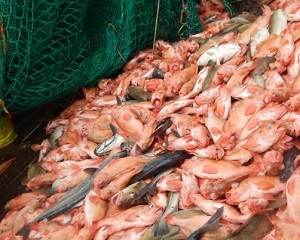 Following months of anticipation and lobbying in Quebec, Newfoundland and Labrador, and Nova Scotia, the federal government has announced how it will allocate fishing access to the redfish population in the Gulf of St. Lawrence. The allocations were announced on Friday by Fisheries Minister Diane Lebouthillier at a news conference in Gaspé, Que. Under the new terms, Nova Scotia will continue to receive the largest portion of the allocation, but it appears the province has received in the past will decline. It is unclear by how much. more, >>click to read<< 15:55
Following months of anticipation and lobbying in Quebec, Newfoundland and Labrador, and Nova Scotia, the federal government has announced how it will allocate fishing access to the redfish population in the Gulf of St. Lawrence. The allocations were announced on Friday by Fisheries Minister Diane Lebouthillier at a news conference in Gaspé, Que. Under the new terms, Nova Scotia will continue to receive the largest portion of the allocation, but it appears the province has received in the past will decline. It is unclear by how much. more, >>click to read<< 15:55
N.S. First Nations to exercise right to moderate livelihood during upcoming lobster season
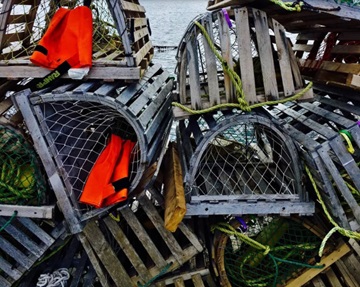 For the third consecutive year, four First Nations in southwestern Nova Scotia will exercise their treaty right to fish for a moderate living when Canada’s most lucrative lobster fishery opens next week. The Department of Fisheries and Oceans announced Monday that it has again issued an interim authorization to Wasoqopa’q (Acadia), Annapolis Valley, Bear River and Glooscap First Nations. DFO insists that moderate livelihood fishing must occur during commercial seasons — a limitation that some Mi’kmaq do not accept. The right to earn a moderate living was recognized — but not defined — by the Supreme Court of Canada more than 20 years ago in the Marshall cases. >>click to read<< 07:53
For the third consecutive year, four First Nations in southwestern Nova Scotia will exercise their treaty right to fish for a moderate living when Canada’s most lucrative lobster fishery opens next week. The Department of Fisheries and Oceans announced Monday that it has again issued an interim authorization to Wasoqopa’q (Acadia), Annapolis Valley, Bear River and Glooscap First Nations. DFO insists that moderate livelihood fishing must occur during commercial seasons — a limitation that some Mi’kmaq do not accept. The right to earn a moderate living was recognized — but not defined — by the Supreme Court of Canada more than 20 years ago in the Marshall cases. >>click to read<< 07:53






